A broken gate creaks and a sudden gust of wind sends a flurry of dirt skitting into the air. Out of the corner of my eye I see a flash of movement through a broken window and cautiously approach the long abandoned building with my heartbeat pounding loudly in my ear.
We are in El Alamin, the famed deserted town in the Comunidad de Madrid which attracts ghost hunters who come here to sneak under the wire fence in the hope of recording spooky sightings and paranormal activity.
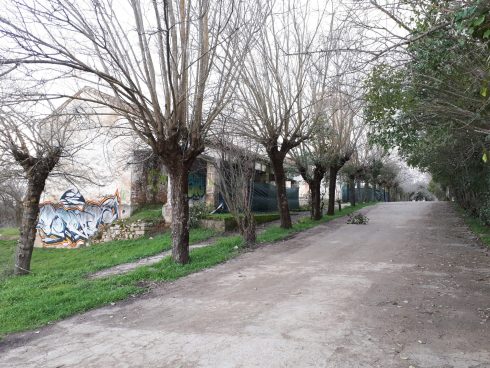
And while the culprit responsible for the flicker of movement turns out to be nothing more ghostly than a strip of plastic caught in the breeze, this certainly is a creepy place.
The hamlet is perched on a bleak hillside some 20 drive from the nearest town of Villa de la Prado, west south west of the capital near the border with Castilla-La Mancha.
Its three dirt streets are lined with plane trees and watched over by a Church tower. At the centre stands what was once a school building, and beside it a convent.
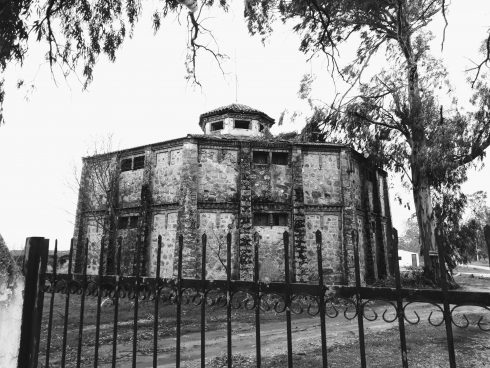
These are now dilapidated, their walls crumbling and overgrown with weeds.
The roofs have fallen in on the rows of identical houses, their contents spilling out but it is possible to still make out blackened hearths and tiled kitchens that hint at family gatherings in once cosy abodes.
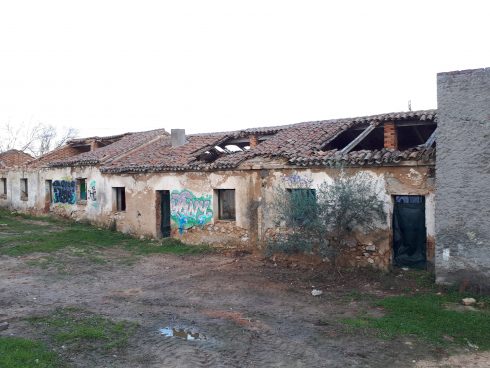
Every surface is covered in graffiti and an old abandoned mattress is littered with discarded beer bottles, suggesting it’s not just ghost hunters who make the trek out here.
Rumours abound that the place was deserted in droves after a curse caused all the livestock to die overnight. Another urban myth suggests star-crossed lovers were found murdered in their beds after celebrating their wedding in the church.
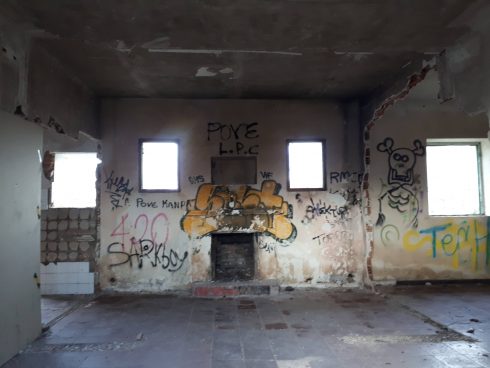
In fact the reasons for the abandonment are more mundane.
The place was created with a utopian vision by Juan Claudio Güell y Churruca, the fourth Marquis of Comillas in the 1950s as a place where the farm workers employed on his estate could live for free with their families and not have to travel far to work.
At its peak 150 people lived in El Alamin and the village school was thriving. There was a bar and a post office and the church was full at mass on Sundays.
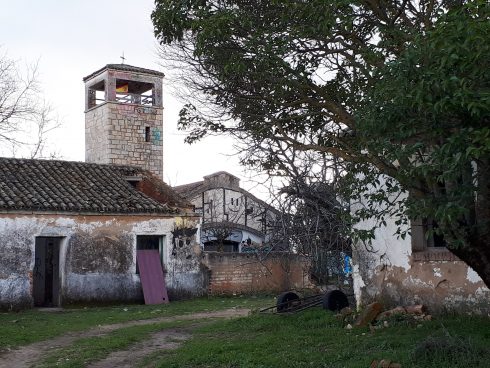
But as time marched on, agricultural work on the nearby estate dried up and the younger generation moved away to the city.
The last family moved on in 2000 and the place was put up for sale for redevelopment when the 2008 crisis hit.
Since then it has stood abandoned, of little interest except to the graffiti artists and paint-ballers who find the deserted urban environment the perfect place to stage a battle.
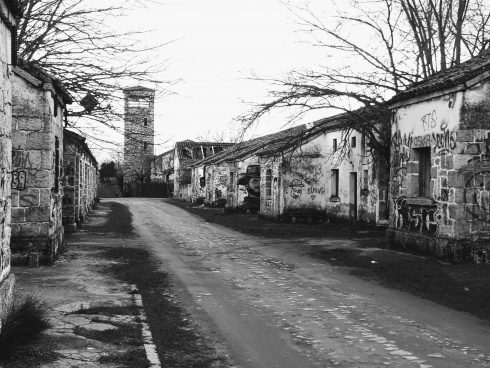
While no genuine phantoms present themselves on my visit, the ghosts of bygone Spain and the demise of a once thriving village fallen victim to modern times and the draw of the big city are very real indeed.
READ ALSO:
